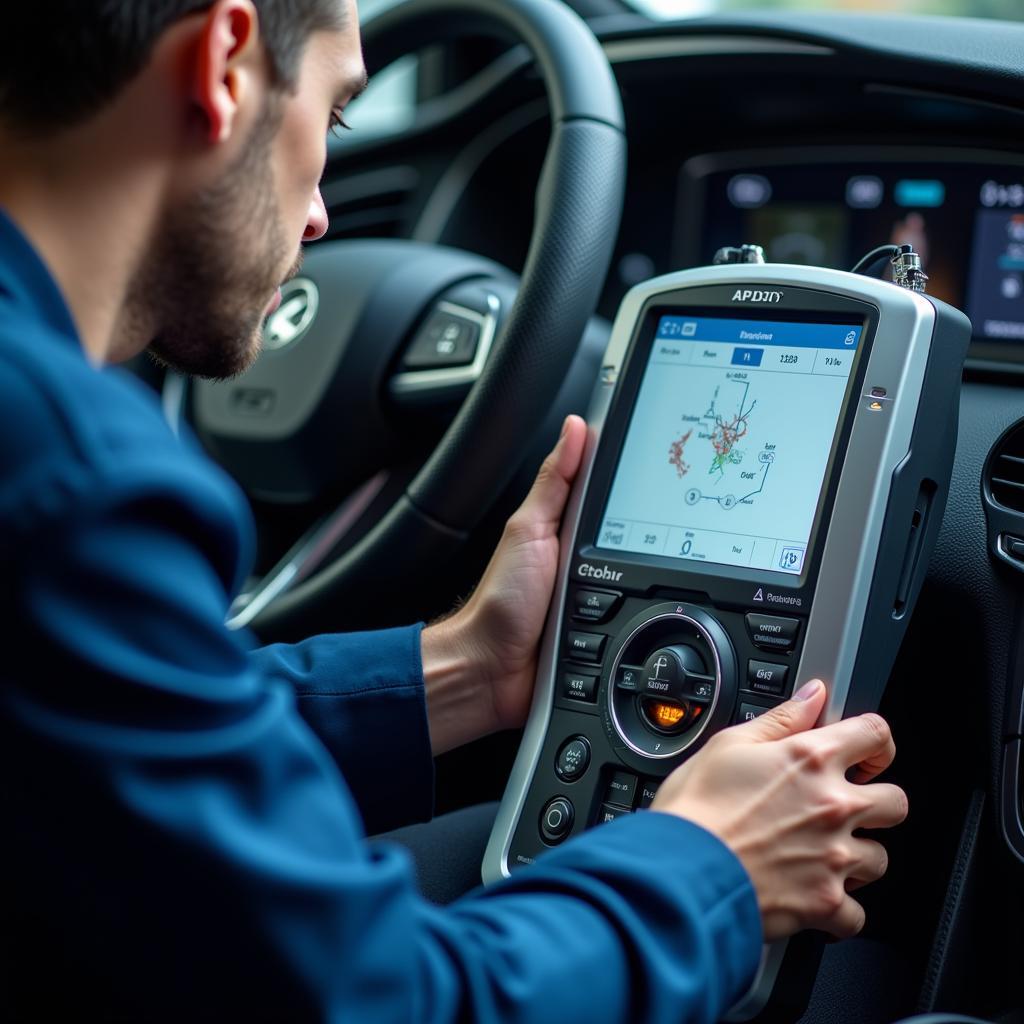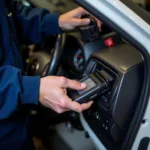Understanding what your car dealership charges for diagnostics can feel like deciphering a secret code. What are you really paying for? Is it worth it? And how can you avoid getting ripped off? This guide breaks down everything you need to know about car dealership diagnostic fees, so you can navigate this process with confidence.
Demystifying the Car Dealership Diagnostic Fee
A car diagnostic fee covers the cost of troubleshooting the issue with your vehicle. Essentially, the dealership is charging you for the technician’s time and expertise in pinpointing the source of the problem. This typically involves:
- Visual inspection: The technician will examine your car for any obvious signs of damage or malfunction.
- Computerized diagnostics: Modern vehicles rely heavily on computer systems. A diagnostic scan with specialized equipment can reveal error codes and pinpoint faulty components.
- Road testing (if applicable): If the issue affects drivability, the technician might take your car for a test drive to experience the problem firsthand.
Factors Influencing Car Dealership Diagnostic Fees
Several factors can influence how much you’ll pay for diagnostics, including:
- Dealership location and reputation: Dealerships in bustling cities or those with prestigious reputations often have higher overhead costs, which can translate to higher fees.
- Vehicle make and model: Luxury or high-performance vehicles often require specialized tools and expertise, potentially increasing the cost of diagnostics.
- Complexity of the issue: A simple problem like a faulty sensor might be diagnosed quickly, while tracking down an intermittent electrical issue could require significantly more time and resources.
Is a Dealership Diagnostic Fee Worth It?
While it’s tempting to avoid the cost altogether, here’s why a dealership diagnostic can be valuable:
- Accurate diagnosis: Dealership technicians specialize in specific makes and models, often undergoing extensive training and having access to manufacturer databases and resources. This specialized knowledge increases the likelihood of an accurate diagnosis.
- Advanced equipment: Dealerships invest in cutting-edge diagnostic equipment that might not be readily available at independent shops. This equipment can be crucial for identifying complex issues, especially in newer vehicles with sophisticated electronics.
- Warranty coverage: If your car is still under warranty, a dealership diagnosis might be required to make a claim for covered repairs.
Tips to Avoid Overpaying for Car Diagnostics
- Inquire about the estimated cost: Don’t be afraid to ask for a price range upfront.
- Check for coupons or discounts: Some dealerships offer specials on diagnostic services, particularly during slower seasons.
- Consider independent mechanics: Reputable independent mechanics can also provide accurate diagnostics, often at a lower labor rate.
- Communicate clearly: Provide the technician with a detailed description of the problem, including any unusual noises, warning lights, or performance issues.
Empowering Informed Decisions
By understanding what a car dealership diagnostic fee entails and the factors that influence its cost, you can make more informed decisions about your vehicle’s maintenance. Remember, clear communication with your chosen service provider is key to ensuring a smooth and cost-effective repair experience.


